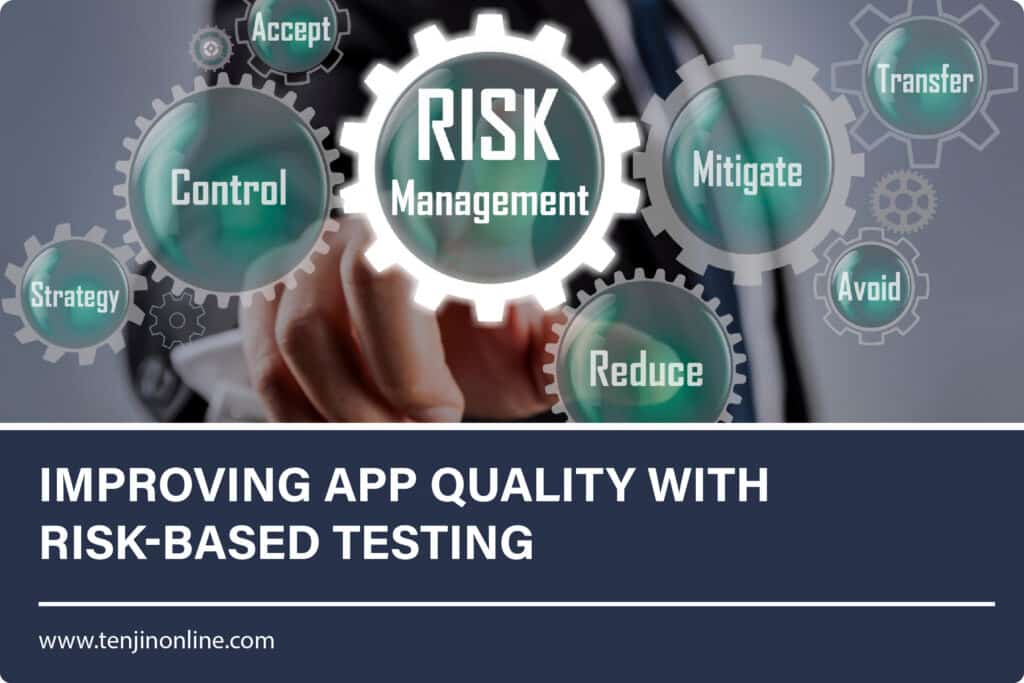
In recent years, digital transformation has created a buzz in the business world. The rapid advancement in technology has brought about a significant change in the way we live, work, and interact with each other. With immense emphasize being laid on technological advancements to sustain and succeed in today’s modern world, organizations are slowly incorporating digital transformation practices. Digital transformation has been identified as a crucial driver of growth and innovation, with businesses adopting new technologies to stay ahead of the curve.
It is clear that digital transformation is becoming increasingly vital for organizations to remain competitive and relevant in their respective industries. One of the critical components of digital transformation is test automation. Test automation refers to the process of utilizing software tools to automate the execution of manual test cases, allowing for more comprehensive and efficient testing of software applications. Though test automation has been a critical component of software development for many years, digital transformation has changed the way we approach it. In this article, we will explore the ways in which digital transformation is changing the test automation landscape.
How are Digital Transformation and Test Automation Connected?
Digital transformation and test automation go hand-in-hand as organizations embrace digital technologies to drive business outcomes. By automating testing, businesses can accelerate their digital transformation journey, reduce time-to-market, and improve the overall quality of their applications. Here are some key ways in which digital transformation and test automation are interconnected:
Speed-to-Market: In today’s digital age, businesses must rapidly develop and deploy applications to stay competitive. With manual testing, it can take days or even weeks to complete a round of testing, significantly delaying the release of software. By automating testing, businesses can considerably reduce the time needed to test an application, allowing them to bring new products and services to the market faster.
Quality Assurance: With the rise of agile development methodologies, organizations must ensure that their applications are of the highest quality, as customers now expect a flawless experience. Test automation can help identify defects early in the development cycle, ensuring that applications are thoroughly tested and meet high standards of quality.
Cost Reduction: Manual testing is a time-consuming and costly process, requiring significant resources and manpower. Automation can help reduce these costs, as it eliminates the need for manual testing and reduces the likelihood of human errors. Additionally, automation can help identify defects earlier in the development cycle, reducing the cost of fixing issues later.
Scalability: As businesses scale, their testing requirements also increase. Test automation can help organizations scale their testing efforts quickly and efficiently, allowing them to test more applications and features without increasing the size of their testing team.
Continuous Integration and Delivery: Test automation is a key enabler of continuous integration and delivery (CI/CD) practices, which are essential components of digital transformation. By automating testing, businesses can continuously test and validate their applications, allowing them to deliver new features and services quickly and with confidence.
The Impact of Digital Transformation on Test Automation
Before delving into the ways in which digital transformation is impacting test automation, it is important to understand what digital transformation is. Digital transformation can be referred to as the process of incorporating digital technologies into all areas of a business, changing the way businesses operate and delivering value to customers. It involves a necessary shift in the way businesses think about technology, from a peripheral tool to a core business strategy.
Increased use of AI and Machine Learning: One of the most significant changes brought about by digital transformation in test automation is the increased use of artificial intelligence (AI) and machine learning (ML). These technologies are being integrated into test automation tools to improve their accuracy, efficiency, and effectiveness.
AI and ML can be used to automate the process of identifying test cases, executing tests, and analyzing results. They can also be used to improve the accuracy of test results by analyzing data from previous test runs to identify patterns and inconsistencies. This means that test automation tools can be more precise and effective, reducing the need for manual testing and improving overall software quality.
Shift to Cloud-based Testing: Another significant impact of digital transformation on test automation is the shift to Cloud-based testing. As more businesses move their operations to the Cloud, there is a growing need for testing tools that can operate in Cloud environments. Cloud-based testing tools offer several advantages, including scalability, flexibility, and cost-effectiveness.
With Cloud-based testing, businesses can easily scale their testing infrastructure up or down as needed, without having to worry about the cost and complexity of managing on-premises testing environments. This means that businesses can test their applications more thoroughly and more frequently, reducing the risk of software bugs and improving overall software quality.
DevOps and Agile Testing: Digital transformation has also led to a shift in the way software development teams operate. DevOps and agile methodologies have become increasingly popular in recent years, with businesses adopting these approaches to speed up software development and improve collaboration between development and operations teams.
These methodologies place a strong emphasis on continuous testing, with testing integrated into the development process from the very beginning. This means that testing is no longer an afterthought, but an integral part of the software development lifecycle. Test automation plays a critical role in DevOps and agile testing, enabling teams to test their applications continuously and in real time.
Increased Importance of Test Data Management: As businesses collect and analyze more data, there is a growing need for effective test data management. Test data management involves the creation, storage, and maintenance of test data, which is used to test software applications.
Digital transformation has led to an explosion in the volume of data that businesses collect, and this data is being used to improve testing processes. Effective test data management is crucial to ensure that test data is accurate, relevant, and up to date. This means that businesses need to invest in tools and processes that enable them to manage their test data effectively.
Conclusion
Digital transformation is changing the test automation landscape in significant ways. The increased use of AI and ML, shift to Cloud-based testing, adoption of DevOps and agile methodologies, and increased importance of test data are increasing the need to automate the testing process to increase efficiency. Hence, test automation is a crucial component of digital transformation. It enables organizations to accelerate their time-to-market, reduce costs, and improve the overall quality of their applications. By embracing test automation, businesses can successfully navigate the challenges of digital transformation and stay ahead of the competition.


Leave a Reply
You must be logged in to post a comment.